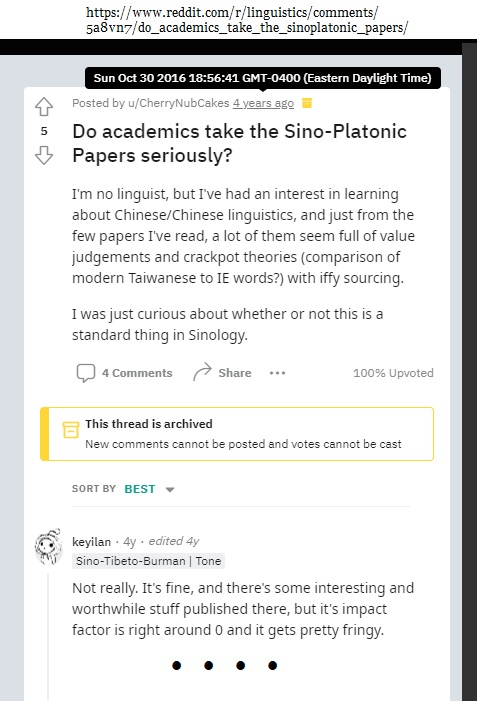In the beginning
was…
the recursion?
"Words are events."
— The Walter J. Ong Project,
quoted in Log24 on Aug. 25, 2003
"Words are events."
— The Walter J. Ong Project,
quoted in the Heckler & Coch weblog
on July 17, 2004 as part of a section
titled "Recursive, Wide, and Loopy"
Walter J. Ong was a Jesuit. The Feast of St. Ignatius Loyola, founder of the Jesuit order, is celebrated on July 31 each year.
"Recursive, Wide, and Loopy 2", a Heckler & Coch entry dated July 31, 2004, leads to the following:
|
MSNBC, Jan. 15, 2004:
How humans got
the gift of gab:
Why do other primates
lag behind in language?
"New research may help scientists dissect just what it is about the human brain that endows us with language.
Researchers have found that tamarin monkeys have some distinctly languagelike abilities but that they can’t quite master the more complex rules of human grammar. The findings appear in Friday’s issue of the journal Science, published by AAAS, the non-profit science society.
The grammatical toolkit
'A relatively open question concerning language evolution is, "What aspects of the language faculty are shared with other animals, and what aspects are unique to humans?" ' said study author Marc Hauser of Harvard University.
To investigate, Hauser and W. Tecumseh Fitch of the University of St. Andrews, in Scotland, devised tests for cotton-top tamarin monkeys and human volunteers. Tamarins have been evolving separately from humans for approximately 40 million years –suggesting that any shared machinery in human and tamarin brains is old enough to be relatively common among primates.
Instead of trying to teach the monkeys real words, Hauser and Fitch generated strings of one-syllable words that followed various grammatical rules.
According to linguistics expert Noam Chomsky, the simplest type of grammar is a 'finite state grammar' or 'FSG,' which dictates which types of words go near each other in a sentence. In English, for example, an adjective like 'fast' must go directly in front of 'car,' the noun it's describing.
Building on previous experiments, Hauser and Fitch recorded word-strings that obeyed a specific FSG, in which any syllable spoken by a female voice was automatically followed by one from a male voice.
Audio: Listen to an FSG word-string.
(Requires Windows Media Player.)
After listening to a series of word-strings, the monkeys were able to distinguish between those that followed this rule and others that didn't. Human test subjects could tell the difference as well, implying that tamarins and humans may share at least some components of what Hauser called 'the universal toolkit underlying all languages.'
Mastering this type of grammar represents the ability to compute some simple statistics, something human infants accomplish early on as they learn to speak. This ability may not be specific to language, however.
'Either the same mechanism or some approximation of it is used in mathematics, vision, music and other activities,' Hauser said.
Upping the Complexity
The grammatical rules of real languages govern more than just the placement of neighboring words, as anyone who had to diagram sentences in English class may remember all too well.
One of the more complex types of grammar is known as a 'phrase structure grammar,' or PSG. These grammars involve relationships between words that aren't next to each other in a sentence and thus allow for a more complex range of expression. The 'if … then' construction is an example of a PSG.
The researchers generated a second set of word-strings that followed a PSG in which a pairing of syllables spoken by a female and a male could be embedded within another pairing. This grammar produces structures like [female [female, male] male].
Audio: Listen to a PSG word-string.
(Requires Windows Media Player)
After playing these recordings repeatedly to the monkeys, the researchers found that the animals didn't seem to notice the difference between word strings that obeyed the PSG and other strings that did not. In contrast, the human volunteers did notice the difference."
— Kathleen Wren
|
"The grammar or syntax of human language is certainly unique. Like an onion or Russian doll, it is recursive: One instance of an item is embedded in another instance of the same item. Recursion makes it possible for the words in a sentence to be widely separated and yet dependent on one another. 'If-then' is a classic example…. Are animals capable of such recursion? Fitch and Hauser have reported that tamarin monkeys are not capable of recursion. Although the monkeys learned a nonrecursive grammar, they failed to learn a grammar that is recursive. Humans readily learn both."
— David Premack (Science 2004 303:318, quoted in ScienceWeek)
These citations by Heckler & Coch show that inability to understand complex language is not limited to monkeys.
The examples given by Wren in the audio samples are of alternating female (Hi) and male (Lo) voices, thus —
FSG: Hi Lo Hi Lo Hi Lo
PSG: Hi Hi Hi Lo Lo Lo
As these examples show, neither monkeys nor humans heard the sound of parentheses (or square brackets) as Wren describes them:
"structures like [female [female, male] male]."
There of course is, in ordinary language (which does not include the monologues of Victor Borge), no such thing as the sound of parentheses.
Thus the research of Hauser and Fitch is not only invalid, but ridiculous.
This point is driven strongly home by the following two articles:
Greg Kochanski, Research Fellow,
Oxford University Phonetics Lab:
Is a Phrase Structure Grammar
the Important Difference
between Humans and Monkeys?,
and
Mark Liberman, Professor,
University of Pennsylvania
Departments of Linguistics
and of Computer Science,
and co-director of the
Institute for Research
in Cognitive Science,
in his
Language Log,
January 17, 2004:
Hi Lo Hi Lo,
it's off to
formal language theory
we go.






